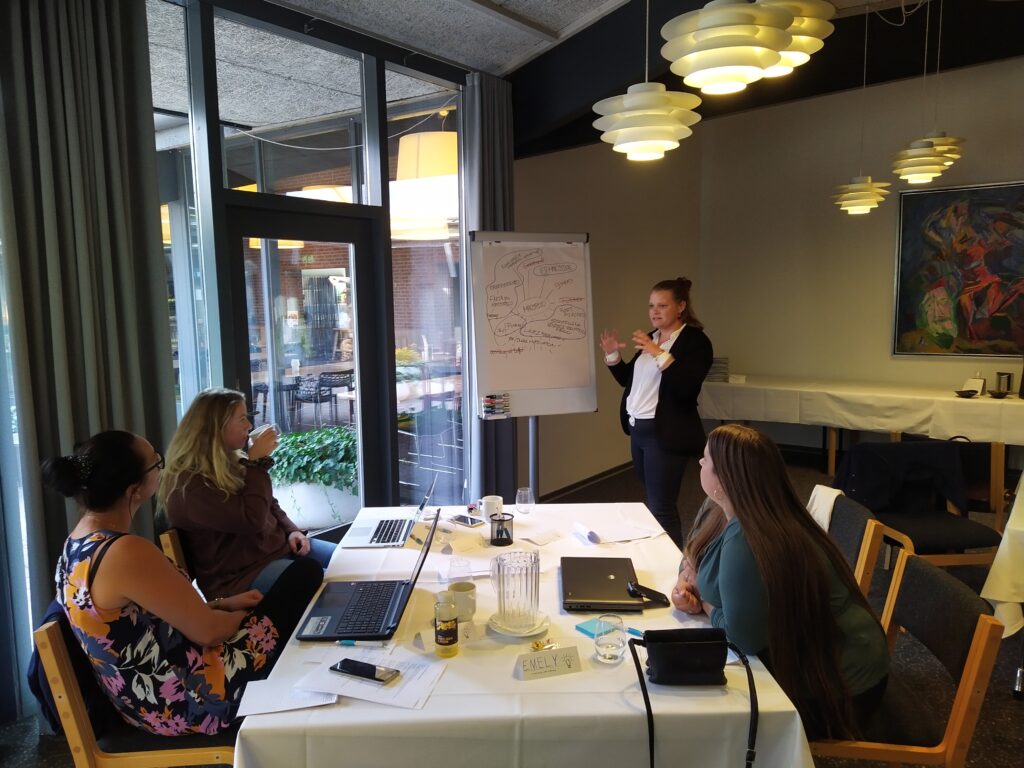Wicked problems are hard to solve! Working together is complex, but necessary to solve these wicked problems! Ever heard these comments before?
Well, our TourNord partners from the University of Turku and Business Academy SouthWest have just published an article in the Nordic Journal of Vocation and Education titled “Collaborative Problem Solving: A pedagogy for workplace relevance” where they studied the pedagogical approach of collaborative problem solving in the context of work-based learning and complex (wicked) problems.
A truly collaborative project, 72 students were included (ranging from vocational students, university of applied science students and university students), 9 teachers and 5 industry professionals across 4 separate workshops in Finland and Denmark.

The article is open-access and freely available to all here. Want to read a bit more? Check out the abstract below!
A big congratulations to Timo Halttunen, Christian Dragin-Jensen, Céline Kylänpää and Anders Karkov on the work!
Questions about the research? Contact Timo Halttunen, corresponding author.
This article is part of a larger project! You can read more about it here!
Abstract
Collaborative problem solving (CPS) is a widely used pedagogical approach in work-based learning. To facilitate the complex process of situated learning, researchers have emphasized the need for scaffolding to enable learning of skills while engaged in problem-solving. While CPS as a pedagogical practice has mainly been examined in classroom situations, a research gap exists in studies of CPS in real-world contexts. In this study, we contribute to the understanding of CPS by examining the contextual characteristics that shape students’ and teachers’ experiences in situated learning. Consequently, we present a multi-case study to investigate involvement of a business professional as a source for scaffolding on site, in a hotel business environment. We employed a qualitative, multi-case methodology in the study. An ill-structured, real-world problem of food waste in the hotel service sector was presented to students (N = 72) and their accompanying teachers (N = 9) from second and tertiary education. They were provided with access to expert knowledge and opinion by industry professionals (N=5) on site. We collected data via observations, interviews, and questions from the involved stakeholders in three physical locations in Denmark and in Finland. Additionally, we documented their experiences using an online collaboration tool in each case. Despite the scaffolding provided by the business professionals, students underused the resources available for their learning in the extended learning environment. Students benefited from guided exploration of the problem space, structured feedback, and teacher interventions, resulting in improved perspective taking, participation, social regulation, task regulation and knowledge building.
(Source: Halttunen, T., Dragin-Jensen, C., Kylänpää, C., & Karkov, A. (2023). Collaborative problem solving: A pedagogy for workplace relevance. Nordic Journal of Vocational Education and Training, 13(2), 45–73. https://doi.org/10.3384/njvet.2242-458X.2313245)
